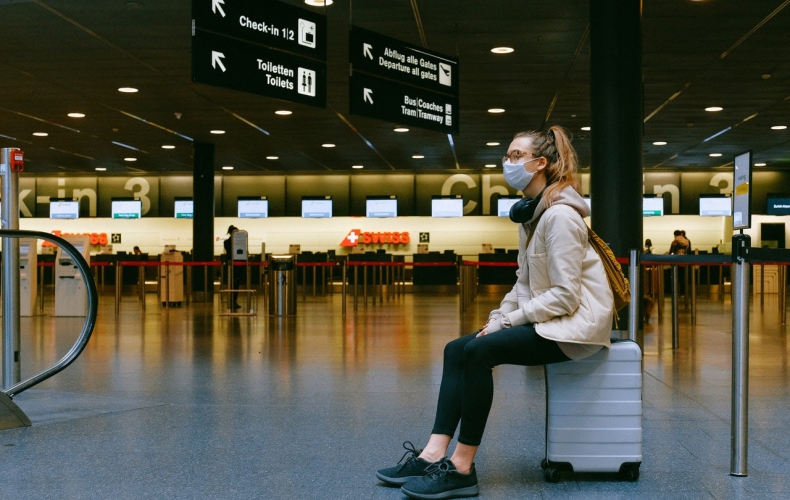Negligence and COVID-19: What Do I Need to Know?

As businesses and organizations like yours reopen in the wake of continuing coronavirus infections, you need to ensure you are covered against liability related to a COVID-19 outbreak on your premises.
You must follow duty of care as it relates to local COVID-19 policy to best cover yourself, but even so, there is still ambiguity in the United States related to legal protection.
On July 31st, the U.S. Chamber of Commerce and business stakeholders sent a letter to lawmakers seeking legislation waiving the right to sue related to COVID-19. In the absence of such a policy, some businesses and schools are resorting to coronavirus waivers for employees, students, and clientele.
Yet it remains to be seen if these waivers will have any teeth in a court of law. In the meantime, the implementation of them has caused several public outcries. Your best defense as an employer is to ensure you cover yourself against claims of negligence, which we go into below.
Employer Waiver Statistics & Pending Lawsuits Against Businesses
A COVID-19 workplace survey from law firm Blank Rome suggests that approximately three-quarters of employers are not looking to implement COVID-19 employee liability waivers. Currently, only 8% of employers already had them in place.
Meanwhile, the first of what are sure to be many COVID-19 related lawsuits against businesses are trickling in.
For example, a woman is suing Safeway and its parent company Albertsons Companies after her husband contracted the coronavirus, allegedly caught while working in their distribution center, and died. Also, the company Tyson is being sued by the families of three workers at one of their pork processing plants who died of COVID-19.
School District Recalls Waivers After Backlash
The Volusia County school district in Florida distributed, and then quickly recalled, COVID-19 liability waivers sent to both coaches and student-athletes. The documents listed all the precautions being taken by the district schools and included the waiver clause: “I recognize that VCS cannot limit all potential sources of COVID-19 infection. By signing this agreement, I acknowledge that I alone have to determine the sufficiency of any safety protocols, rules or precautions that I decide to take to minimize the risks of participating in (extracurricular activities).”
Naturally, this led to concern on the part of many parents and staff to return to school, since the use of waivers suggests that, despite precautions, they likely felt the level of COVID-19 infection risk was high.
The Volusia United Educators President, Elizabeth Albert, sent out a cease and desist to the district before the recall as employees were not allowed to sign the waiver based on the rights outlined in their contract.
Missouri’s Hazelwood School District similarly was criticised over its use of waivers for those involved in athletics programs, but the waiver still stands. The district emphasizes on their information page that “no students are required to participate in athletics” and “Our district has implemented unprecedented safety precautions in all of our buildings; however, it is important for parents to understand that school districts can only mitigate the risk of COVID-19. No district, organization, or business can offer 100% protection against exposure to a global pandemic. Visit the Centers for Disease Control website for more information about COVID-19.”
How to Ensure Your Business is Safe Against Legal Action
Here at WaiverForever, we’re big fans of legal waivers – but it’s important to recognize the PR and legal risks presented above. You may still choose to utilize safety waivers as some of the employers and schools listed above have done, but you should also recognize that there is no precedent for infectious disease lawsuits for a pandemic.
That being said, many employers are taking a middle ground, such as having their employees sign safety waivers in which they agree to comply with COVID-19 workplace safety rules. This is a more legally acceptable alternative, and many of our users have been using our online form building and signing tool to have their employees sign these documents digitally. This also allows employers to retain a running record of compliance without having to worry about stacks of paper liability waivers.
The most important thing you can do to protect your business against coronavirus negligence claims is to develop a reopening plan that follows state and local public safety guidelines to the letter, and keep meticulous records of everything should a lawsuit arise.
Gross negligence, on which a lawsuit would have to be predicated, assumes that you are not taking sensible precautions to keep your workers and students safe.
Creating an environment in which you follow public health guidelines will ensure you can’t be accused of promoting COVID-19 infections:
- Inform staff/students of proper COVID-19 working protocols, with plenty of signage
- Create a safe indoor environment with proper social distancing measures
- Provide proper PPE and enforce its use where it is required
- Ensure those who experience COVID-19 symptoms stay home
- Allow for full or part-time remote work/learning where possible
- Shut down a facility despite knowledge of a potential COVID-19 infection
- Inform staff/students that they may have been exposed to someone who later tested positive for COVID-19
The COVID-19 pandemic presents all manner of logistical challenges for organizations, but as the world reopens we need to do our part to minimize the impact of this pandemic.
With a solid risk management plan in place and the buy-in of all staff/employees, your organization can recover and gain some semblance of normalcy in this very un-normal time.